Stay in the know on all smart updates of your favorite topics.
Floating Urban Development Challenge; Co-creating imaginable, workable and attractive scenarios
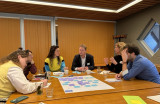
Due to lack of space and climate change, the future of living might need to partly move on to water areas. In our history of conquering the water, the Dutch have a head start in some of the challenges associated with living on- and with water. Researchers and designers are therefore imagining and conceptualizing floating urban development. However, to make it a truly realistic and imaginable future scenario, there are more hurdles to overcome. To realize floating neighborhoods, we’ll need to find solutions for more than only the technical aspects, like; financing, community support, ecological aspects, affordability and political support.
Overcoming these barriers will be difficult. We’re currently focusing on urgent (housing)crises and our collective belief on urban development is mainly focused on ‘family apartments on land’. This challenge revolves around creating imaginable and workable scenarios of urban development on water.
GEMINI: Greening European Mobility through cascading innovation INItiatives
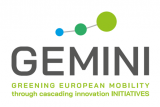
Context
At the heart of the GEMINI Project lies a commitment to fostering innovation and to accelerate the transition towards climate neutrality in mobility solutions.
Goal 11 of the UN Sustainable Development Goals advocates for access to safe, affordable, and sustainable transport systems. Nowadays, transport plays a significant role on air pollution and is one of the major sources of greenhouse gas emissions and is the only sector in the EU with increased Green House Gas (GHG) emissions compared to 1990.
The promotion of sustainable and innovative mobility solutions can help towards reducing GHG and carbon footprints, improving air quality, and achieving climate goals.
Project brief
The GEMINI Project (2023-2026 “Greening European Mobility through cascading innovation Initiatives” is a Horizon Europe funded project with 43 partners led by the Urban Electric Mobility Initiative (UEMI).
To accelerate the transition towards climate neutrality, GEMINI aims to foster widespread adoption of sustainable shared mobility solutions. To achieve this, the project will develop and test innovative business models for New Mobility Services (NMS) such as shared connected automated vehicles and shared mobility public transport through public-private partnerships. The NMS business models will be demonstrated in ten European Cities (Amsterdam, Copenhagen, Helsinki, Munich, Leuven, Ljubljana, Paris-Saclay, Porto and Turin).
Additionally, GEMINI will create digital tools and platforms that accommodate various mobility services, promoting collaboration and integration within the mobility sector. The project will actively engage stakeholders in the co-creation process, introducing Mobility as a Commons (MaaC) and incentivizing behavioural shifts and user acceptance of these new mobility options.
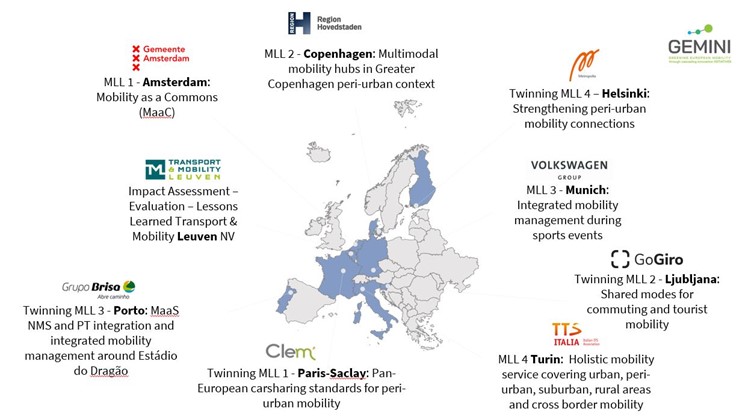
Furthermore, GEMINI will formulate policy recommendations to enable the scaling up and replication of successful mobility solutions. By aligning with Sustainable Urban Mobility Plans (SUMPs) and urban mobility planning frameworks, the project aims to contribute to a comprehensive policy package that guides and incentivizes future mobility innovations. The GEMINI project envisions fostering sustainable, accessible, and affordable shared mobility solutions that contribute to a safer and more environmentally friendly urban mobility landscape.
Objectives
- Develop and test sustainable business models for New Mobility Services (NMS) to increase shared mobility solutions (MaaS and MaaC) for various user groups, including enterprises, families, and tourists.
- Create digital enablers, including collaboration platforms and multimodal MaaS solutions, to integrate and facilitate a wide range of mobility services.
- Actively involve stakeholders in the co-creation of new mobility options and integrate Social Innovation practices to incentivize behavioural changes and user acceptance.
- Formulate policy recommendations to support the scaling up and replicability of successful mobility solutions, contributing to the development and implementation of SUMPs and urban mobility planning frameworks.
Cenex NL key contributions
The team plays a vital role in developing policy recommendations and technology roadmaps to accelerate the deployment of innovative mobility services. Through collaboration with local authorities in twinning cities, these roadmaps will align with the fast-track deployment of shared mobility trends in the short and medium term. Additionally, Cenex NL will contribute to the development of the Handbook consolidating the project’s learnings and offering practical guidance to cities and citizens across Europe.
This project has received funding from the European Union’s Horizon Europe research and innovation programme under grant agreement No 101103801.
Open Database of Bicycle Infrastructure Manuals
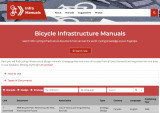
500+ cycling infrastructure documents from all over the world, and growing. Cycling infrastructure design manuals, strategy guides and more all curated in one easy-to-use database.
Code the Streets - Creating innovative solutions for sustainable, inclusive and safe mobility.

As Amsterdam’s metropolitan area continues to grow, so do traffic related issues such as congestion, crowded streets, and increasing pressures on fragile infrastructures. Just like cities worldwide, the City of Amsterdam is faced with the challenge of finding better ways to manage urban mobility. Code the Streets wants to support cities with this challenge by bringing together cities, mobility providers and science to create sustainable and inclusive mobility solutions that keep cities liveable, now and in the future.
Code the Streets is working on improving an already existing navigation app by adding data about school zones, fragile infrastructures, congestion and pollution. We want to stimulate car-users to choose an alternative route, for example one that avoids school zones or vulnerable city infrastructure. That way we work to towards a more sustainable way of driving and make the streets of Amsterdam safer and less crowded. Starting in autumn, we will be running pilot programs testing the application in Amsterdam. Interested in trying the app? Sign up here.
Code the Streets is an European EIT Urban Mobility Project bringing together partners from Amsterdam, Helsinki and Budapest to work on innovative solutions for sustainable, inclusive and safe mobility.
Note from ASC: What do you think? Let’s hear it in the comments!
Operationeel Mobiliteitscentrum (OMC)

In de toekomst zullen we ons anders door de stad moeten bewegen. Vanwege de toenemende drukte en de verduurzamingsopgave zullen we minder afhankelijk moeten worden van onze privéauto. Dit betekent meer fietsen, meer met het openbaar vervoer en meer gebruik van nieuwe vormen van vervoer zoals deelmobiliteit. Om deze mobiliteitstransitie te kunnen faciliteren moet de gemeente ook haar rol als wegbeheerder herzien. De huidige verkeerscentrale is namelijk nog vooral gericht op klassiek wegverkeer en kijkt dus niet naar de verschillende mobiliteitsstromen. Daarom testen we in Amsterdam Zuidoost met een nieuwe mobiliteitscentrale die naar alle verschillende mobiliteitsstromen kijkt.
Wicked Problems
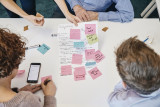
Te wicked? Niet voor ons.
Wij werken allemaal aan urgente, complexe, maatschappelijke uitdagingen. Issues die schier onoplosbaar lijken, van dilemma’s en paradoxen omgeven, nog niet duidelijk hoe het moet. Wel is duidelijk dát het moet, dat we elkaar nodig
hebben en dat we er NU aan moeten beginnen. Om met de woorden van Jan Rotmans te spreken; we leven niet in een tijdperk van verandering maar in een verandering van tijdperk. En hier hoort een nieuwe gereedschapskist bij.
En of je nou aan energietransitie werkt, andere mobiliteitssystemen, creëren van waterstofhubs, peer to peer autodeelsystemen, het maakt niet uit, we zien dat al deze opgaven op enig moment tegen gelijksoortige barrières aanlopen. Op samenwerking, financiering, privacy, onvoldoende aansluiting op de maatschappij, om maar een paar voorbeelden te noemen.
Unieke samenwerking
Als Amsterdam Smart City netwerk willen en kunnen we deze opgaven niet laten liggen. Door het bundelen van onze kennis en expertise kunnen we als netwerk iets unieks bieden en de wil en durf tonen om deze barrières te doorbreken. De betrokken partners die dit uitdenken en begeleiden zijn RHDHV, Kennisland, Drift, NEMO, Arcadis, Alliander, HvA en Metabolic. Zij bundelen hun expertise en ervaring om de echte vragen boven tafel te krijgen, tot nieuwe manieren van samenwerken te komen en barrières te doorbreken. We richten ons met name op de start van de samenwerking. Gezamenlijk ontwikkelen we een ‘wicked problem aanpak’. Op een nieuwe manier, lerend door te doen, exploratief.
Waar moet je aan denken?
Wat is eigenlijk het echte probleem? Wiens probleem is dit? Hoe kijken anderen er tegenaan? Welke andere partijen lijken nodig? Hoe vind je ze? Hoe ga je om met eigenaarschap en botsende frames? Hoe zorg je dat je al in
een vroeg stadium de maatschappij (bewoners, ondernemers, werknemers, etc) betrekt en hun ervaringen in het project trekt? Het wicked problem team zet nieuwe methoden in voor het beantwoorden van deze vragen. En het creëren van de benodigde commitment om het vraagstuk aan te pakken. Niets staat van te voren vast, want we passen ons aan aan wat we tegenkomen. Met elkaar ontwikkelen we een nieuwe aanpak om de barrières te doorbreken.
Stay up to date
Get notified about new updates, opportunities or events that match your interests.

